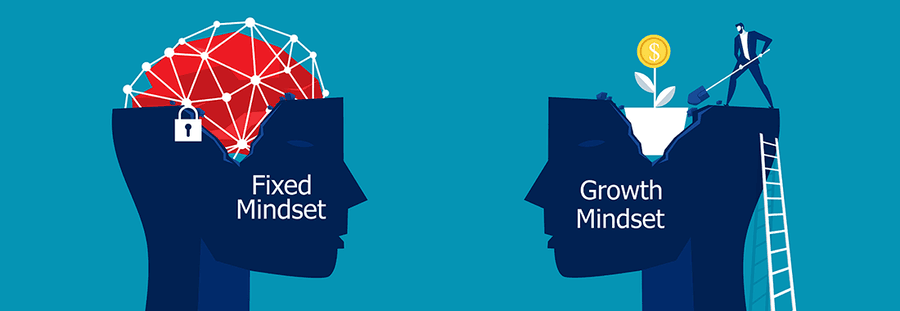Genius is 1% talent and 99% hard work, said Albert Einstein. But that's not all. There is one more thing you need to check before you roll up your sleeves.
It's your mindset .
The right mindset is crucial to success.
You may have heard of Carol Dweck's work in the psychology of success area. The evidence from her research clearly points out that the single most important trait that all successful people have in common is their specific mindset.
Growth mindset .
Dweck's excellent book: Mindset: The New Psychology of Success ) presents Growth And Fixed Mindset - two beliefs systems about human abilities, intelligence, talent.
People with Fixed Mindset perceive all these as inborn, given at birth. The individual just needs to discover these gifts and follow them to achieve success. People with Fixed Mindset, according to Dweck, thrive when they do things within their reach - things they can do really well and be recognized for.
169
214 reads
The idea is part of this collection:
Learn more about motivationandinspiration with this collection
How to handle conflicts
How to identify and regulate emotions
How to develop self-awareness
Related collections
Similar ideas to
Two Ways of Thinking
Carol Dweck, the author of Mindset: The New Psychology of Success, identified two ways of thinking.
We either have a fixed mindset or a growth mindset. The people with the former believe that they are born with certain abilities and those are wha...
1. Build a Growth Mindset
Research by psychologist Carol Dweck suggests that there are two basic mindsets that influence how people think about themselves and their abilities: the fixed mindset and the growth mindset.
Praising intelligence
Research on the growth mindset by Carol Dweck found that praise can actually be counterproductive and discourage people from taking risks.
Dweck’s research shows that praising effort and persistence is a much better way to motivate people.
Read & Learn
20x Faster
without
deepstash
with
deepstash
with
deepstash
Personalized microlearning
—
100+ Learning Journeys
—
Access to 200,000+ ideas
—
Access to the mobile app
—
Unlimited idea saving
—
—
Unlimited history
—
—
Unlimited listening to ideas
—
—
Downloading & offline access
—
—
Supercharge your mind with one idea per day
Enter your email and spend 1 minute every day to learn something new.
I agree to receive email updates

